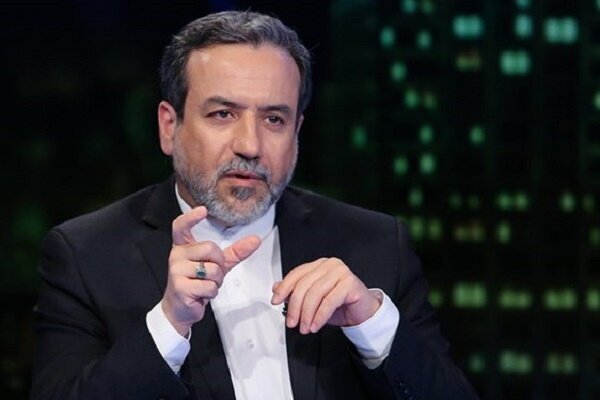Iran can enrich uranium beyond 20% if necessary, says top nuclear negotiator

TEHRAN — Deputy Foreign Minister Abbas Araghchi has said Iran can enrich uranium beyond 20% if it needed to, emphasizing that the country’s enrichment program continues based on its needs.
“Our enrichment program is based on our field needs. We do not need to enrich more than 20% at the moment. If a need is defined, the country can decide,” Araghchi, a top nuclear negotiator, said on Monday evening.
“The start of 20% enrichment activities on the anniversary of Martyr Hajj Qassem Soleimani and the 40th day of the martyrdom of Martyr Mohsen Fakhrizadeh has a message for others, showing that they cannot stop the scientific movement of Iran by physically eliminating it,” he added.
It came hours after Iran officially announced that it has started the process to enrich uranium to 20 percent purity at its Fordow nuclear facility.
“The start of 20% enrichment activities on the anniversary of Martyr Hajj Qassem Soleimani and the 40th day of the martyrdom of Martyr Mohsen Fakhrizadeh has a message for others, showing that they cannot stop the scientific movement of Iran by physically eliminating it,” Deputy Foreign Minister Abbas Araghchi asserts.
Government spokesman Ali Rabiei announced on Monday that President Hassan Rouhani has ordered the implementation of a new law, dubbed the Strategic Action Plan to Counter Sanctions, which has been already approved by the Parliament.
The action plan introduces a step-by-step strategy for the government to increase nuclear activities in a few months if the other side failed to implement certain commitments.
The law is part of a broader strategy that aims to lift the United States sanctions on Iran and was put forward by the lawmakers in early November. It aims to force the United States into lifting sanctions on Iran by doubling down on nuclear activities.
Iran and six world powers, including the U.S., Russia, China, France, Britain and Germany, and also the European Union, reached a nuclear deal, officially known as the Joint Comprehensive Plan of Action (JCPOA), in Vienna on 14 July 2015. However, U.S. President Donald Trump unilaterally withdrew from the JCPOA on May 8, 2018. The move was deplored by all other parties to the deal.
In response, Iran waited a year for the remaining sides to protect its interests under the deal. But since they failed to do so, Iran started to reduce its commitments under the JCPOA beginning on May 8, 2019, exactly one year after Trump’s unilateral withdrawal.
‘West should give up delusion it can set conditions for sanctions removal as Iran has opted for JCPOA-free economy’
Elsewhere in his Monday remarks, Araghchi urged Western countries to give up the delusion that they can set conditions for the lifting of sanctions as Iran has opted for a JCPOA-free economy.
He said Iran is not excited about possible U.S. return to the JCPOA under the incoming Biden administration. “It is not the case that we would embrace U.S.’s return with open arms.”
On the European countries’ reaction to Iran’s 20% enrichment, the top diplomat said Europeans are not entitled to speak about this issue.
“If this is a deviation from the JCPOA, their failure to fulfill commitments regarding the lifting of sanctions against Iran is a complete deviation from the JCPOA,” he said.
If the European countries are willing to salvage the deal, they’d better modify their own path and then they will witness Iran’s return to its JCPOA commitments.
MH/PA
Leave a Comment